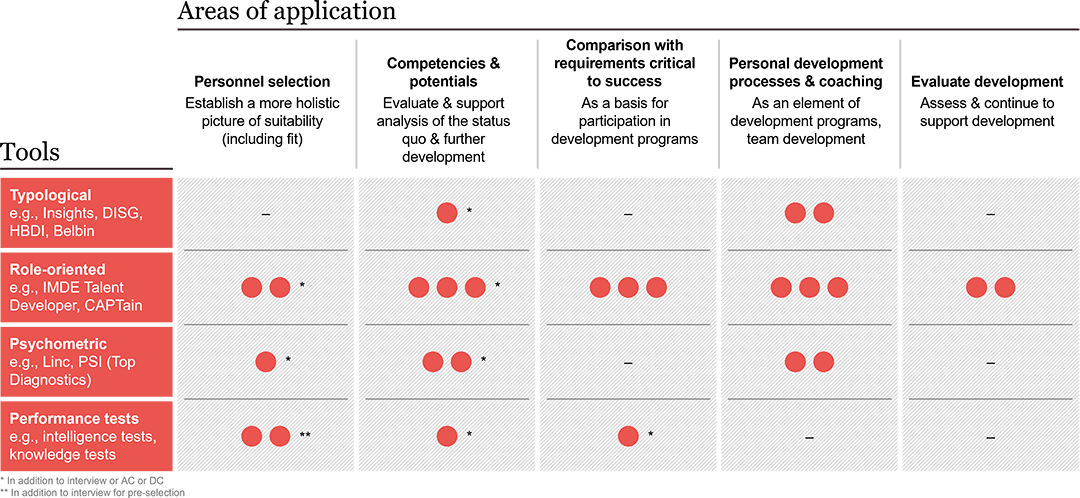Potential Analysis and Reflection Tools
- Which tools support development, reflection, improvement of communication and team development efficiently and effectively?
- Which tools are perceived by participants as meaningful and supportive?
- What are useful decision criteria for tool selection?
- How can tools improve and intensify HR processes - recruiting, talent management, performance management, competence management, etc.?
- What are important factors when using tools to ensure that they are effective and accepted?
The conscious analysis of one's own strengths, development areas and potentials can open our eyes to new perspectives and previously untapped knowledge.
The market for diagnostic tools offers a wealth of potential analysis & reflection tools. Some of them promise a very wide range of possible applications or are tailored to very specific application questions. At 5P, we have been successfully using various tools for 20 years. For us, it is not just a question of the tool itself, but the effective and appropriate integration of tools into selection or development processes. Correctly selected tools only develop their full impact through transparent communication regarding the process of introduction, evaluation and reflection.
Many good tools provide a compact format for identifying, discussing and reflecting on trends and provide concrete starting points for development, cooperation and communication.

Fig.: How we use diagnostic tools - here: Tools that optimally support reflection processes
| Type of tool | Focus | Application | |
| IMDE Talent Developer |
Role based Benchmarked Can be calibrated to competence model |
Success factors Attitudes |
Selection Development Coaching |
|
CAPTain Computer Aided Personnel Test answers inevitable |
Role based Can be calibrated to competence model |
Behavioral styles Working style |
Application areas Development Coaching |
| Linc Personality Profiler (LPP) | Psychometric |
Big5 Character, motivation and competencies |
Selection Development Coaching |
| PSI TOP Diagnostik |
Psychometric Projective |
Motivation Self-regulation competencies Personal styles |
Individual reflection and development in coaching, training and as an element of intensive and high-quality development programs |
| Belbin | Typology | Preferences for team roles |
Team development Training |
| Strengthfinder |
Talents: Mindsets, feelings and behaviors |
Training Coaching |
|
| HBDI | Typology | Thinking preferences | Training |
| Insights, AEC Disc | Typology | Personality |
Team development Training |
Vorgehen

Fig.: Steps in the application of diagnostic tools
